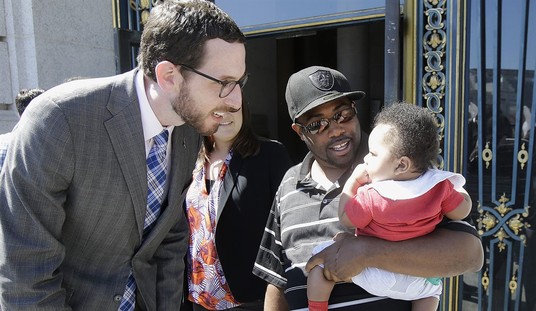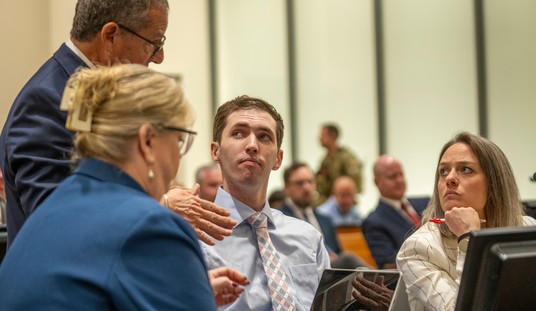“Sunday Reflection” is a regular feature, looking at the specific readings used in today’s Mass in Catholic parishes around the world. The reflection represents only my own point of view, intended to help prepare myself for the Lord’s day and perhaps spark a meaningful discussion. Previous Sunday Reflections from the main page can be found here. For previous Green Room entries, click here.
This morning’s Gospel reading is Matthew 16:21–27:
Jesus began to show his disciples that he must go to Jerusalem and suffer greatly from the elders, the chief priests, and the scribes, and be killed and on the third day be raised. Then Peter took Jesus aside and began to rebuke him, “God forbid, Lord! No such thing shall ever happen to you.” He turned and said to Peter, “Get behind me, Satan! You are an obstacle to me. You are thinking not as God does, but as human beings do.”
Then Jesus said to his disciples, “Whoever wishes to come after me must deny himself, take up his cross, and follow me. For whoever wishes to save his life will lose it, but whoever loses his life for my sake will find it. What profit would there be for one to gain the whole world and forfeit his life? Or what can one give in exchange for his life? For the Son of Man will come with his angels in his Father’s glory, and then he will repay all according to his conduct.”
How many of us had fathers and mothers who traveled as part of their jobs when they were growing up? When we were really small, we might have clung to their leg as they packed, saying, “No, Daddy, you can’t go.” Maybe when we were a little older, we’d just complain that their travels interfered with our own plans. My father traveled quite a bit, working on the Apollo and Space Shuttle programs, and I can recall a couple of usual reactions I had when he’d get ready to travel — being whiny, and then asking for a souvenir. I stopped being whiny when I got a little older, but I’m not sure I ever stopped asking for the souvenir.
We had this reaction because of our lack of understanding, and our own self-centeredness. We want to order the world to our own will, even when we only see a very, very small part of the entire picture. That is what we see in today’s Gospel as well. Peter, who just a few minutes earlier got the keys to the kingdom from Jesus, fails to see the larger picture of Jesus’ sacrifice even while it is being explained to him. Peter loves Jesus, and so he reacts as a small child would when told his parent was going to go away — he thinks it will be forever, and clings to him rather than see the journey made for the benefit of all.
Peter gets sharply rebuked from Jesus for this self-centeredness, in such harsh terms that it still stuns more than two thousand years later. Satan originally meant “opponent,” but it’s still a powerful insult to the man whom Jesus knew would lead His church after the Passion. The name sticks, though, because Satan rejected the will of the Lord and made himself an obstacle to His will for the world. The insult would have been so great that it’s a wonder it was ever recorded, especially by those who were in Jesus’ circle of disciples.
And yet, here we have it and many other examples of the disciples falling short. The mother of James and John demanded seats of power for their sons. Thomas doubted and demanded a test of the Lord before he would trust in the Resurrection. Peter’s loyalty failed him during the Passion, and this episode in particular coming so soon after Jesus named Peter the head of the church, and so on. The Gospels are filled with disciples’ doubts, questions, and failures to comprehend lessons until Jesus has to spell them out.
Why include it at all? We are all the same children as the disciples were prior to Pentecost, and all the same as Peter in this instance. All too often, we want the world to bend to our will, not the Lord’s. We want what we want for our own sake, rather than for the sake of others and the world now and to come. We certainly pray in the Lord’s prayer that “Thy will be done,” but let’s be honest. Most of us have thought at one time or another that we have a pretty good idea of what God should do, and wish He’d consult with us before having His will unfold.
Today’s first reading from Jeremiah demonstrates the futility of this thinking rather well. Jeremiah is a most reluctant prophet who complains about being “duped” by the Lord into this role. Like a child, he refuses to comply in a passage that almost sounds like a kid threatening to hold his breath until he gets his way: “I say to myself, I will not mention him, I will speak in his name no more.” How does that work out for Jeremiah? About as well as Peter telling Jesus that He can’t leave, or me telling my dad not to go on his business trip. Attempting to resist the will of God wearies Jeremiah, and the only way to alleviate it is to submit to His will and proclaim His word.
Jeremiah tells this story not to complain about God, nor did the disciples relate these unbecoming episodes as merely historians. They teach us an important lesson about faith, and about true caritas love. First, we all fall short of total self-sacrificing love without the Holy Spirit to guide us, but none of us should despair because the Holy Spirit is with us, even when we stumble. After all, the Holy Spirit spoke through Jeremiah even when Jeremiah resisted it. Jesus was with Peter and rebuked him in this episode, and even after Peter’s denial of Jesus the Holy Spirit lifted Peter up and worked through him to build the Christian church around the world. Our own will and our own selfish natures may serve as obstacles in the short run, but none of us can oppose the will of the Lord for long, even if we remain obstinate longer than Jeremiah.
The Gospels and the prophets call us out of ourselves and our own self-centeredness in sin. Peter could not recognize that Jesus’ plan all along was to offer Himself in sacrifice to expiate our own sins for all time, the greatest act of caritas imaginable. Instead, Peter wants to keep Him for as long as possible, either because Peter still has a more selfish view of what the Messiah should be or simply out of an understandable but immature devotion to Jesus. Either way, Peter is not thinking about the multitudes who will find salvation through the Passion, but of the here and now, a sharp contrast to the perfect caritas that Jesus has just finished describing.
These stories themselves are acts of caritas too, given to a fallen people burdened by sin and despair. Peter and the disciples could have easily focused their prophesying on Jesus alone, but they chose to tell these humiliating stories out of love for all of us, guided by the Holy Spirit in doing so. They did not set up the Christian church as a pantheon of perfect high priests in service to God, but of men and women who imperfectly groped their way to the light so that all of us might find it. If we can set aside our childish insistence on having our own immature wills being serviced and put ourselves in service to God’s will, we will all go on that journey together.
The front-page image is a sculpture at the Primacy of Peter Church in Galilee, depicting the “feed my sheep” passage. The picture is from my own collection.








Join the conversation as a VIP Member